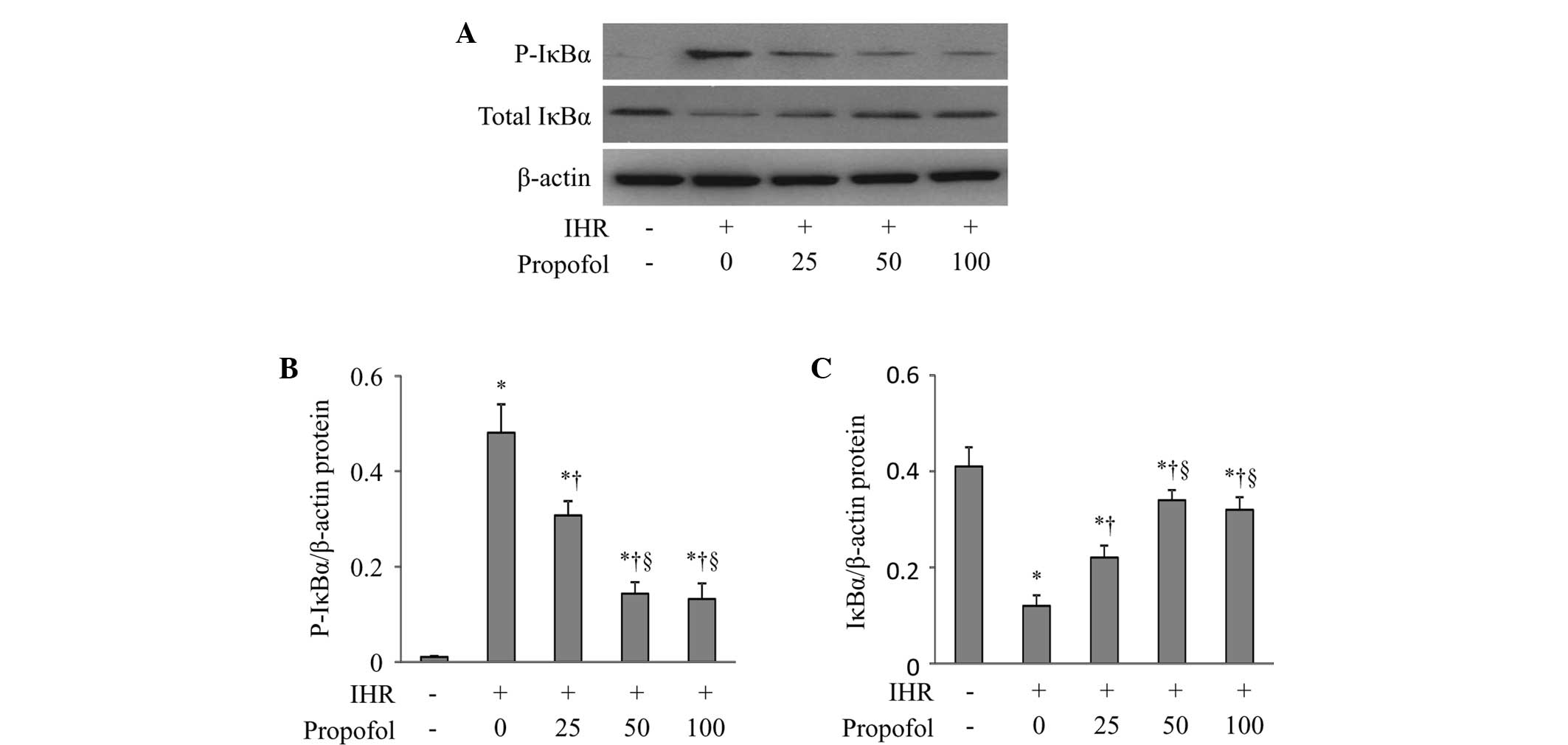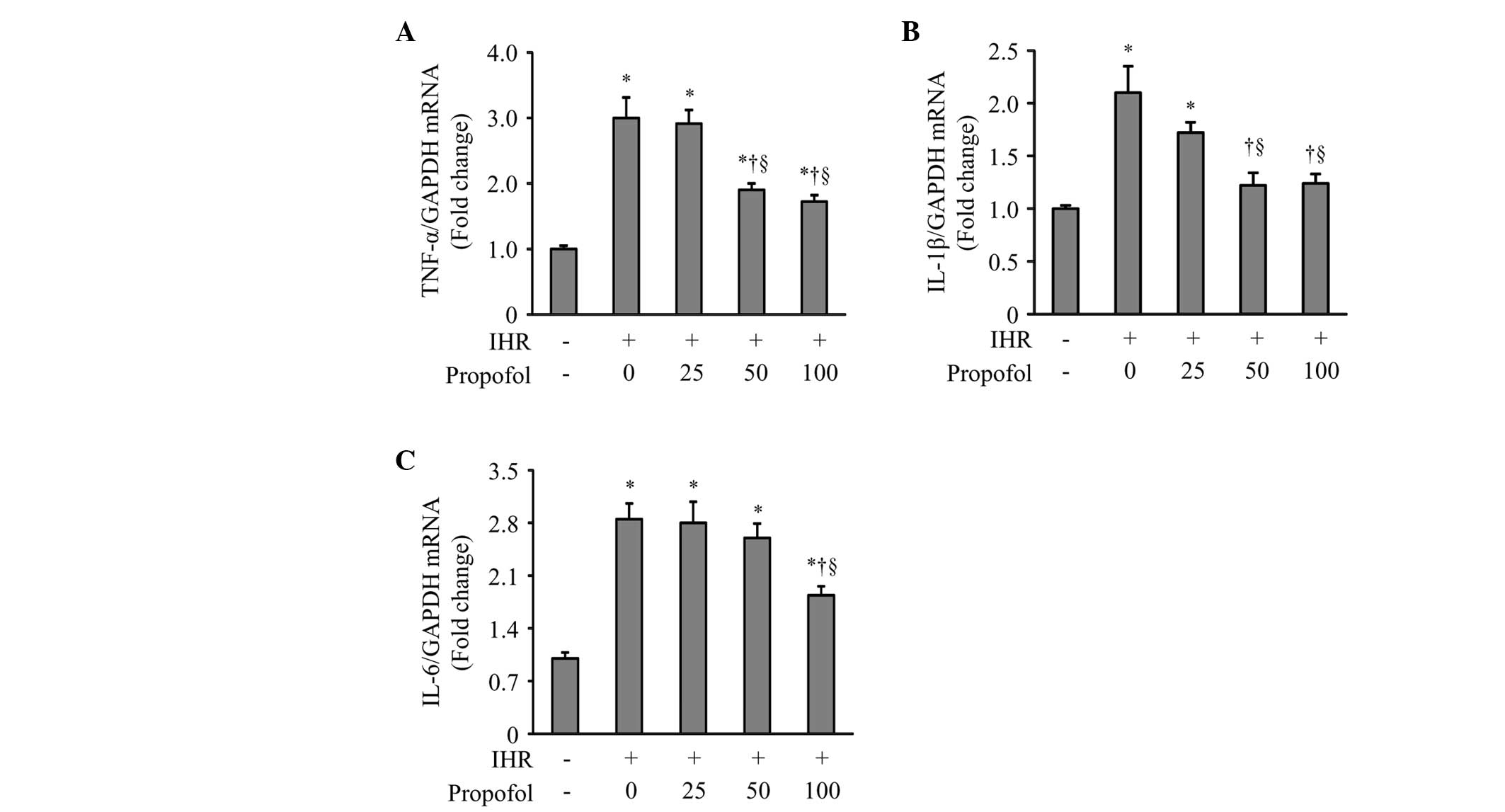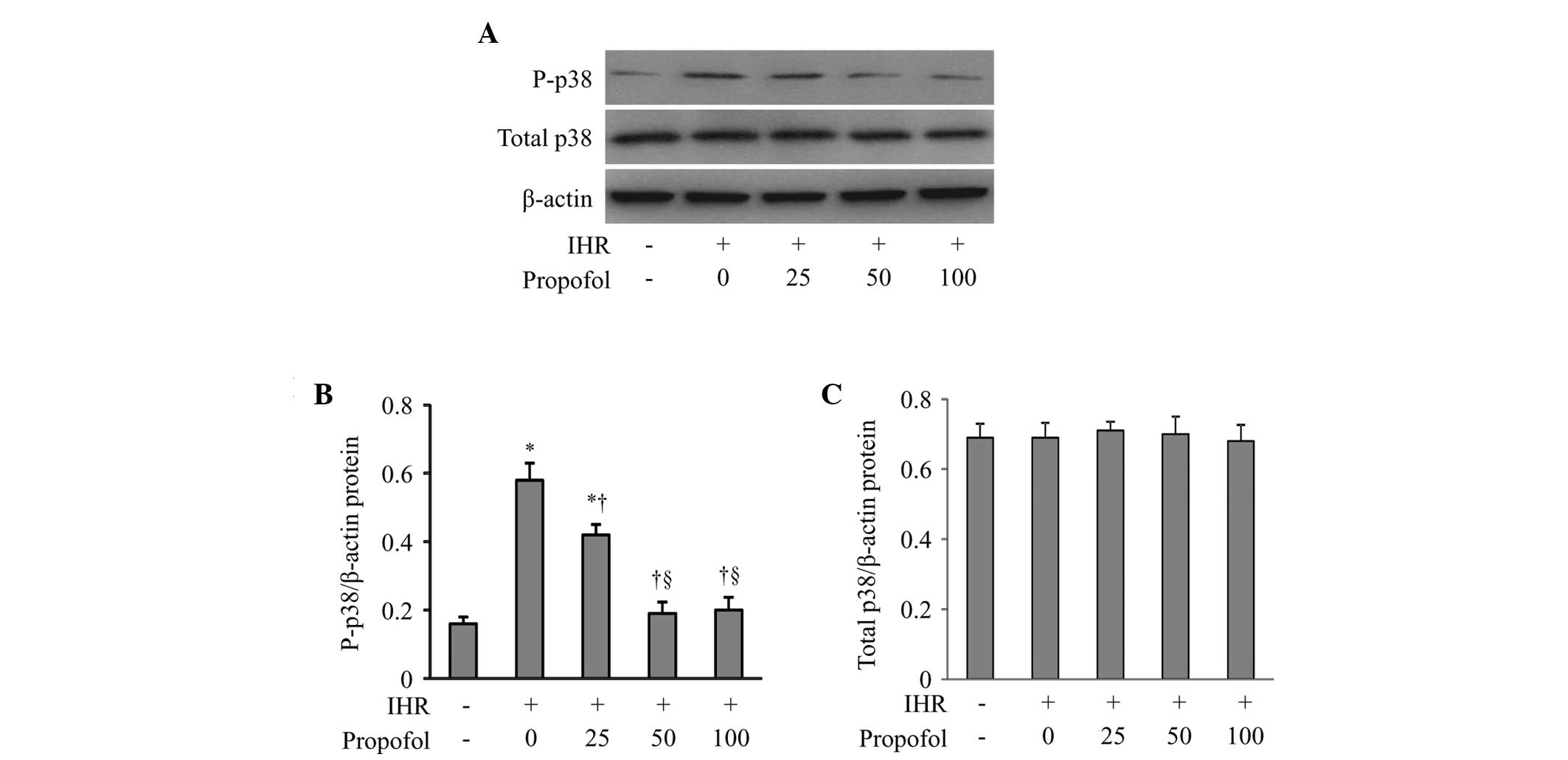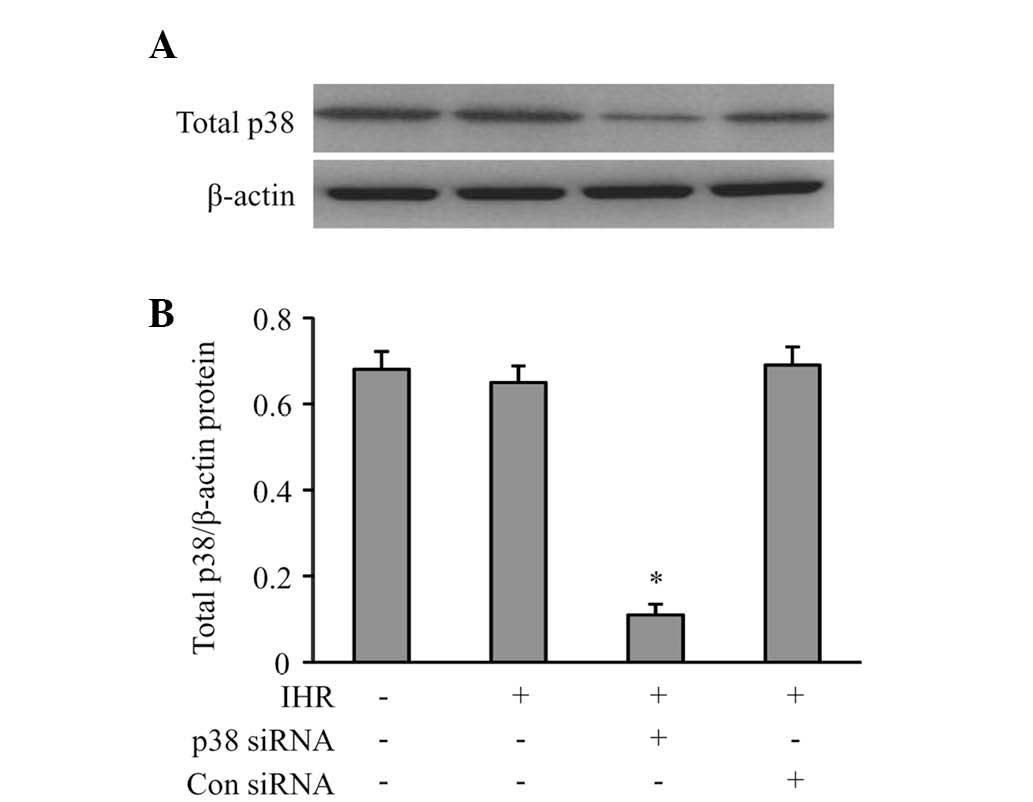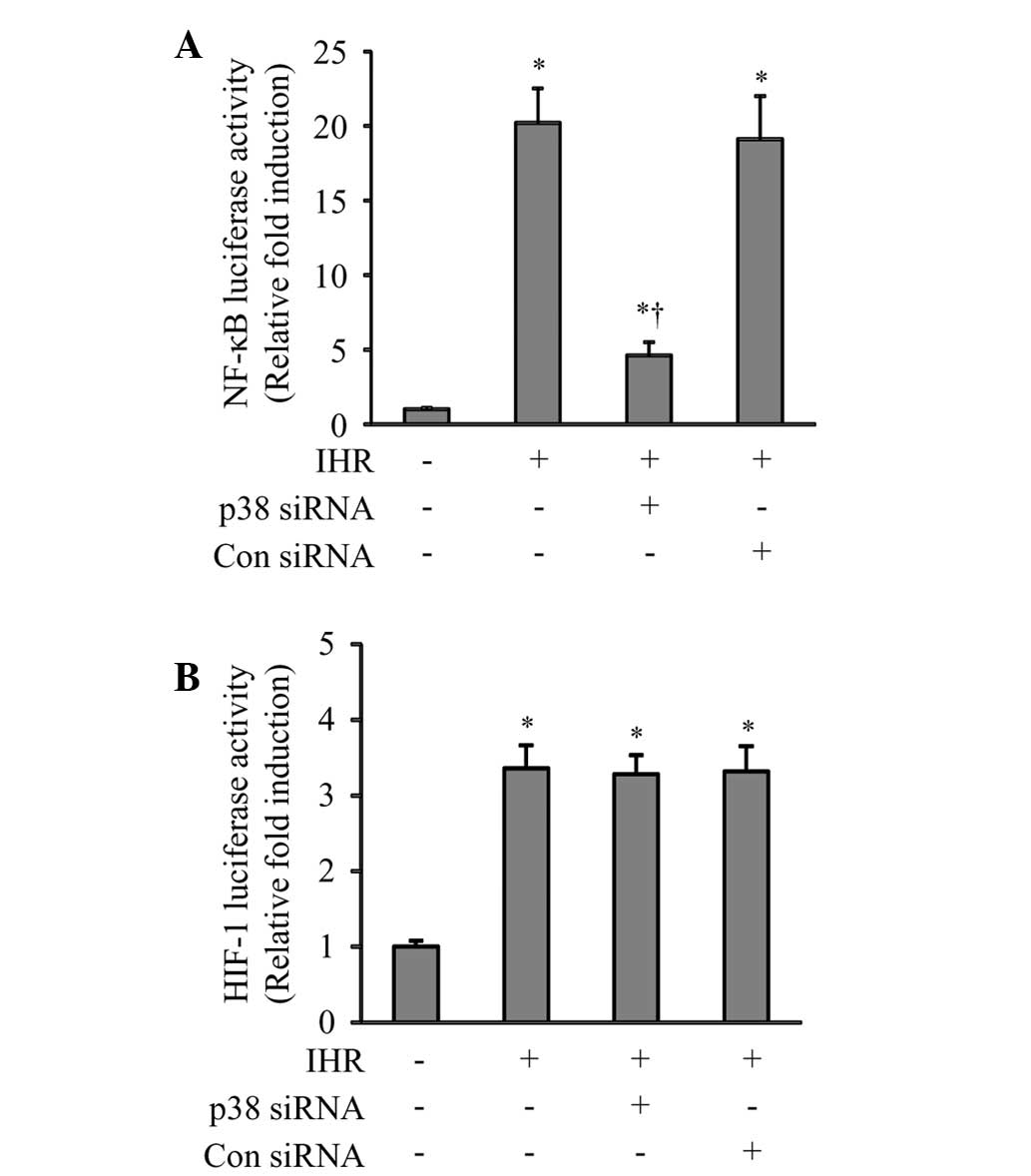|
1
|
Yaggi HK, Concato J, Kernan WN, Lichtman
JH, Brass LM and Mohsenin V: Obstructive sleep apnea as a risk
factor for stroke and death. N Engl J Med. 353:2034–2041. 2005.
View Article : Google Scholar : PubMed/NCBI
|
|
2
|
Quan SF and Gersh BJ; National Center on
Sleep Disorders Research; National Heart, Lung, and Blood
Institute. Cardiovascular consequences of sleep-disordered
breathing: past, present and future: report of a workshop from the
National Center on Sleep Disorders Research and the National Heart,
Lung, and Blood Institute. Circulation. 109:951–957. 2004.
View Article : Google Scholar
|
|
3
|
Fang G, Song D, Ye X, Mao SZ, Liu G and
Liu SF: Chronic intermittent hypoxia exposure induces
atherosclerosis in ApoE knockout mice: role of NF-κB p50. Am J
Pathol. 181:1530–1539. 2012.PubMed/NCBI
|
|
4
|
Lan L, Tao J, Chen A, et al:
Electroacupuncture exerts anti-inflammatory effects in cerebral
ischemia-reperfusion injured rats via suppression of the TLR4/NF-κB
pathway. Int J Mol Med. 31:75–80. 2013.PubMed/NCBI
|
|
5
|
Tang Z, Jiang L, Peng J, et al: PCSK9
siRNA suppresses the inflammatory response induced by oxLDL through
inhibition of NF-κB activation in THP-1-derived macrophages. Int J
Mol Med. 30:931–938. 2012.PubMed/NCBI
|
|
6
|
Abe J: Role of PKCs and NF-kappaB
activation in myocardial inflammation: enemy or ally? J Mol Cell
Cardiol. 43:404–408. 2007. View Article : Google Scholar : PubMed/NCBI
|
|
7
|
Ryan S, McNicholas WT and Taylor CT: A
critical role for p38 map kinase in NF-kappaB signaling during
intermittent hypoxia/reoxygenation. Biochem Biophys Res Commun.
355:728–733. 2007. View Article : Google Scholar : PubMed/NCBI
|
|
8
|
Han Q, Yeung SC, Ip MS and Mak JC:
Intermittent hypoxia-induced NF-κB and HO-1 regulation in human
endothelial EA.hy926 cells. Cell Biochem Biophys. 66:431–441.
2013.
|
|
9
|
Song D, Fang G, Mao SZ, et al: Chronic
intermittent hypoxia induces atherosclerosis by NF-κB-dependent
mechanisms. Biochim Biophys Acta. 1822:1650–1659. 2012.
|
|
10
|
Htoo AK, Greenberg H, Tongia S, et al:
Activation of nuclear factor kappaB in obstructive sleep apnea: a
pathway leading to systemic inflammation. Sleep Breath. 10:43–50.
2006. View Article : Google Scholar : PubMed/NCBI
|
|
11
|
Ryan S, Taylor CT and McNicholas WT:
Selective activation of inflammatory pathways by intermittent
hypoxia in obstructive sleep apnea syndrome. Circulation.
112:2660–2667. 2005. View Article : Google Scholar : PubMed/NCBI
|
|
12
|
Ryan S, Taylor CT and McNicholas WT:
Systemic inflammation: a key factor in the pathogenesis of
cardiovascular complications in obstructive sleep apnoea syndrome?
Thorax. 64:631–636. 2009.
|
|
13
|
Marik PE: Propofol: an immunomodulating
agent. Pharmacotherapy. 25:28S–33S. 2005. View Article : Google Scholar : PubMed/NCBI
|
|
14
|
Tang J, Chen X, Tu W, et al: Propofol
inhibits the activation of p38 through up-regulating the expression
of annexin A1 to exert its anti-inflammation effect. PLoS One.
6:e278902011. View Article : Google Scholar : PubMed/NCBI
|
|
15
|
Li H, Tan J, Zou Z, Huang CG and Shi XY:
Propofol post-conditioning protects against cardiomyocyte apoptosis
in hypoxia/reoxygenation injury by suppressing nuclear factor-kappa
B translocation via extracellular signal-regulated kinase
mitogen-activated protein kinase pathway. Eur J Anaesthesiol.
28:525–534. 2011. View Article : Google Scholar
|
|
16
|
Drager LF, Polotsky VY and Lorenzi-Filho
G: Obstructive sleep apnea: an emerging risk factor for
atherosclerosis. Chest. 140:534–542. 2011. View Article : Google Scholar : PubMed/NCBI
|
|
17
|
Arnaud C, Dematteis M, Pepin JL, Baguet JP
and Lévy P: Obstructive sleep apnea, immuno-inflammation, and
atherosclerosis. Semin Immunopathol. 31:113–125. 2009. View Article : Google Scholar : PubMed/NCBI
|
|
18
|
Endemann DH and Schiffrin EL: Endothelial
dysfunction. J Am Soc Nephrol. 15:1983–1992. 2004. View Article : Google Scholar
|
|
19
|
Kutuk O and Basaga H: Bcl-2 protein
family: implications in vascular apoptosis and atherosclerosis.
Apoptosis. 11:1661–1675. 2006. View Article : Google Scholar : PubMed/NCBI
|
|
20
|
Martinet W and Kockx MM: Apoptosis in
atherosclerosis: focus on oxidized lipids and inflammation. Curr
Opin Lipidol. 12:535–541. 2001. View Article : Google Scholar : PubMed/NCBI
|
|
21
|
Thurberg BL and Collins T: The nuclear
factor-kappa B/inhibitor of kappa B autoregulatory system and
atherosclerosis. Curr Opin Lipidol. 9:387–396. 1998. View Article : Google Scholar : PubMed/NCBI
|
|
22
|
Yeh CH, Cho W, So EC, et al: Propofol
inhibits lipopolysaccharide-induced lung epithelial cell injury by
reducing hypoxia-inducible factor-1alpha expression. Br J Anaesth.
106:590–599. 2011. View Article : Google Scholar : PubMed/NCBI
|
|
23
|
Li S, Qian XH, Zhou W, et al:
Time-dependent inflammatory factor production and NFκB activation
in a rodent model of intermittent hypoxia. Swiss Med Wkly.
141:w133092011.
|
|
24
|
Tanaka T, Takabuchi S, Nishi K, et al: The
intravenous anesthetic propofol inhibits lipopolysaccharide-induced
hypoxia-inducible factor 1 activation and suppresses the glucose
metabolism in macrophages. J Anesth. 24:54–60. 2010. View Article : Google Scholar
|
|
25
|
He XY, Shi XY, Yuan HB, Xu HT, Li YK and
Zou Z: Propofol attenuates hypoxia-induced apoptosis in alveolar
epithelial type II cells through down-regulating hypoxia-inducible
factor-1α. Injury. 43:279–283. 2012.PubMed/NCBI
|
|
26
|
Lee SH, Lee YJ and Han HJ: Effect of
arachidonic acid on hypoxia-induced IL-6 production in mouse ES
cells: Involvement of MAPKs, NF-kappaB, and HIF-1alpha. J Cell
Physiol. 222:574–585. 2010.PubMed/NCBI
|
|
27
|
Kumar S, Boehm J and Lee JC: p38 MAP
kinases: key signalling molecules as therapeutic targets for
inflammatory diseases. Nat Rev Drug Discov. 2:717–726. 2003.
View Article : Google Scholar : PubMed/NCBI
|
|
28
|
Karin M: Inflammation-activated protein
kinases as targets for drug development. Proc Am Thorac Soc.
2:386–390. 2005. View Article : Google Scholar : PubMed/NCBI
|
















